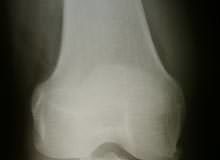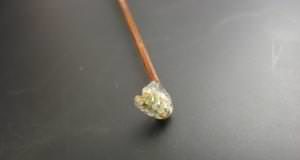Too Much Glucosamine Can Cause The Death Of Pancreatic Cells, Increase...
High doses or prolonged use of glucosamine causes the death of pancreatic cells and could increase the risk of developing diabetes, according to a team of researchers at Université Laval's Faculty of Pharmacy. Details of this discovery were recently published on the website of the Journal of Endocrinology.
New Pain Treatment Is the Best Yet
A new approach alleviates osteoarthritis pain better than any drug available. A new class of pain relievers that targets musculoskeletal pain receptors, instead of more general pain pathways, could alleviate osteoarthritis pain better than any drug now on the market, but hurdles remain before it's approved by the U.S. Food and Drug Administration. Research on the new therapy was published yesterday in the New England Journal of Medicine.
Does Clenching Your Muscles Increase Willpower?
The next time you feel your willpower slipping as you pass that mouth-watering dessert case, tighten your muscles. A new study in the Journal of Consumer Research says firming muscles can shore up self-control.
New Key To Tissue Regeneration: Drug Treatment Triggers Sodium Ions To...
Sodium gets a bad rap for contributing to hypertension and cardiovascular disease. Now biologists at Tufts University's School of Arts and Sciences have discovered that sodium also plays a key role in initiating a regenerative response after severe injury. The Tufts scientists have found a way to regenerate injured spinal cord and muscle by using small molecule drugs to trigger an influx of sodium ions into injured cells.
Light Workout: Scientists Use Optogenetics To Effectively Stimulate Muscle Movement In...
Researchers at Stanford University were able to use light to induce normal patterns of muscle contraction, in a study involving bio-engineered mice whose nerve-cell surfaces are coated with special light-sensitive proteins.
Popular Supplements To Combat Joint Pain Do Not Work, Study Finds
Two popular supplements taken by millions of people around the world to combat joint pain, do not work, finds research published online in the British Medical Journal. The supplements, glucosamine and chondroitin, are either taken on their own or in combination to reduce the pain caused by osteoarthritis in hips and knees.
Acupuncture’s Molecular Effects Pinned Down
Scientists have taken another important step toward understanding just how sticking needles into the body can ease pain. In a paper published online May 30 in Nature Neuroscience, a team at the University of Rochester Medical Center identifies the molecule adenosine as a central player in parlaying some of the effects of acupuncture in the body.
More Protein-Rich Food On Elders’ Plates, Muscle-Metabolism Study Suggests
Scientists at the University of Texas Medical Branch at Galveston have good news for people who want to stay strong in their old age: older bodies are just as good as young ones at turning protein-rich food into muscle.
Muscle Loss In Elderly Linked To Blood Vessels’ Failure To Dilate
Why do people become physically weaker as they age? And is there any way to slow, stop, or even reverse this process, breaking the link between increasing age and frailty?
Muscle Mass In Elderly Boosted By Combining Resistance Exercise And Blood...
For years, researchers have known that resistance exercise training -- such as weightlifting, in which muscles work against gravity or another force -- can be one of the most effective ways to fight the debilitating muscle loss caused by aging.
Muscle And Bone Diseases Affect Each Other, According To New Theory
Traditionally, doctors and clinicians thought diseases that affect muscles or bones affected those areas specifically. For example, bone diseases only affect bones, or muscle diseases only concerned muscles. But recent evidence supports the notion that...
Reduced Muscle Strength Associated With Risk For Alzheimer’s
Individuals with weaker muscles appear to have a higher risk for Alzheimer's disease and declines in cognitive function over time, according to a report in the November issue of Archives of Neurology, one of the JAMA/Archives journals.














